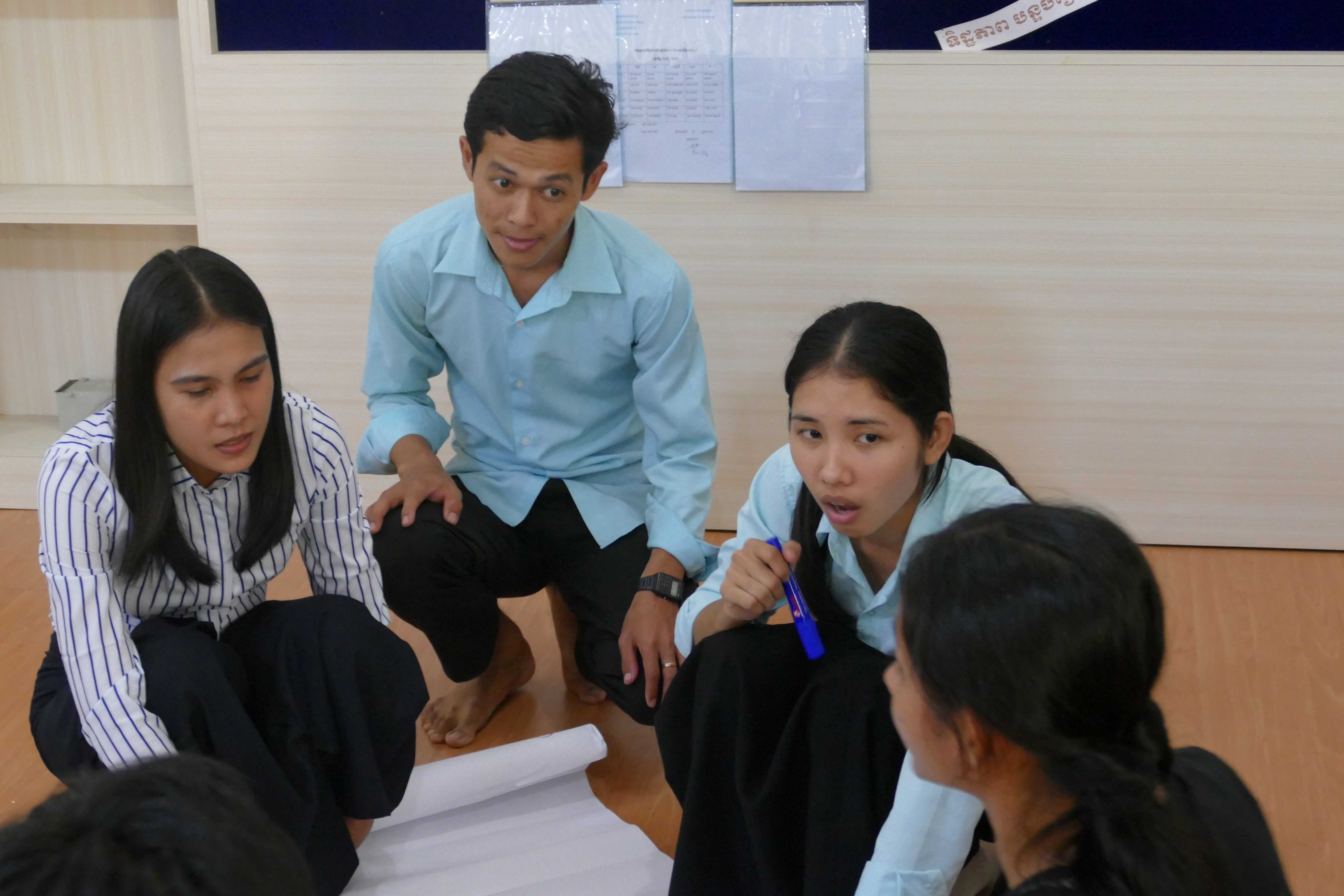
Or how to take advantage of a pedagogical training
It’s not difficult to pinpoint failures in an education system. One only needs to remember why he’s suffered during his school years. But designing a policy is not the same as denouncing an injustice. There is a huge risk to create new injustices in reaction to the former one.
Denouncing rote memorization as a cause for the poor results of Asian students is not a bad thing. Teenagers need to think by themselves and they have few occasions in your traditional system. I mean no offense, you’re the first to acknowledge it. The objective is not to recite mathematical formulas, but to use them to solve problems. Lists of words will not make anyone able to communicate in a foreign language. But if the denunciation of rote memorization means dismissing all forms of memory as a lower and contemptible order of thinking, the results will be catastrophic. Sadly, it’s not a pure hypothesis, but a statement that can be made in many schools around the globe, especially in the West. Students fail miserabily to solve a quadratic equation, because they don’t know their multiplication tables. The stories they write are messy, because they don’t know how to spell words and they don’t understand the conjugation. They would like to perform a role-play in English but are desperate because they just don’t know the vocabulary. The new objective isn’t fulfilled but the older one has been forgotten. The net result is negative, although the intentions were good. Complement but don’t replace.
It may be desirable to avoid repetitions in the curriculum, if possible. It’s a big burden for a child to lose one year while his classmates can move on and learn new stuff. But it’s absolutely necessary to consider the prerequisites for later learnings. Forbiding repetitions by law will only result in poor performances and social disorder, because many students will be absolutely unable to understand the lessons and will therefore misbehave. It’s a major issue in France.
You should not seek high academic achievement at the expense of the students’ health. That why we must be prudent with homework, especially if the students already work a lot of time at school, which is the case in the New Generation Schools in Cambodia. But in other schools, it could be necessary to assign more work to compensate a little bit the lack of teaching hours.
In the same way, teachers are required to eliminate corporal punishments from their practice. It’s a major progress in pedagogy. But this progress doesn’t suppress the need for discipline. Childrens’ protection is France has resulted in an unsustainable situation, because many schools are no longer able to enforce their own rules, or if they do, they have to comply with heavy procedures that can last for months before any decision is made. I remember a boy who was in grade 6 or 7 at the time (6e in the French system). He was expelled because of repeated infractions to the school regulation. To put it simply, he couldn’t stay on a chair for more than a few minutes and disturbed his classmates on purpose almost every single hour. In December, his report card contained hundreds of messages to his parents. We had to give him a second one to continue writing useless messages about his mischiefs. Eventually, the school board decided to expell him. But even after that decision, he remained in our buildings for two months, because we had to find him another school. In fact, I don’t know if the decision was the best to make, or if we should have given him a second chance. But we were ridiculous for not applying that decision. In that kind of situation, which is not uncommon in France, everybody suffers: the students who are compelled to listen to lessons they hate, the teachers who have to deal with insults and violence on a daily basis, and the good students who are bullied or who simply cannot learn anymore because of the disorder. The reason is simple: a small article of law which states that misbehaving children must be inscribed in another school before the decision to expell them is put into effect. The provincial offices who are normally in charge of finding the new school usually take a lot of time to do it. And in most cases, the school director has to call his colleagues himself and ask them if possibly one of them would be kind enough to take his bad guy. It’s hell paved with good intentions.
I think the last example is very significant. What did we lack exactly? We didn’t lack corporal punishements. But we lack the authority to make serious decision. In this case, authority was not a question of personal skill. It was a matter of bureacratic organization. No one can have a real authority if this authority is denied by some high-ranking officer. A good policy is the one which empowers the guys who have to perform the task in the field. A good policy gives the school board the right to organize a real educational team. A good school regulation allows the teachers to make the most urgent decisions by themselves, without the fear to be desavowed by their hierarchy because they have been too severe or too kind. No one but the teacher himself can decide if John’s chatter is a nuisance or can be occasionaly tolerated. He’s the only adult witnessing it! This principle has a name: the principle of subsidiarity. It means that the decisions should be made by the lowest rank of the social structure whenever it’s possible. The higher ranks intervene only when the lower ones are no longer able to fulfil their duty. Surprisingly, the French army has understood this principle, but not the French ministry of education. Maybe our defeat in education is not complete enough to make us learn the lesson.
There is a condition however to implement subsidiarity. The low-ranking officers must receive proper training and understand the purpose of their training. During training sessions, we emphasize only a limited set of questions. We cannot avoid it. There are choices to be made, and we must prioritize some questions over the others. We just assume that what we’ve forgotten is not too important or that it is obvious. Typically, we don’t pay much attention on the tradition, either because we don’t like it or because we think it’s already well-known. Sadly enough those assumptions are often wrong. Don’t forget what you’ve learned before. Don’t despise the work of your own masters, even if it differs substantially from what you are told to do during the training sessions. If you want to imitate them because you’ve loved their lessons, do it. It’s always a good start, before you can find your own teaching style. A teacher should learn as many techniques as possible, so that he will be able to make the best choices, according to the circonstances. Use ICT, yes, modern tools are powerful. But continue to use chalkboards, if you find them more practical to make all the students work.

Poster un Commentaire
Vous devez vous connecter pour publier un commentaire.